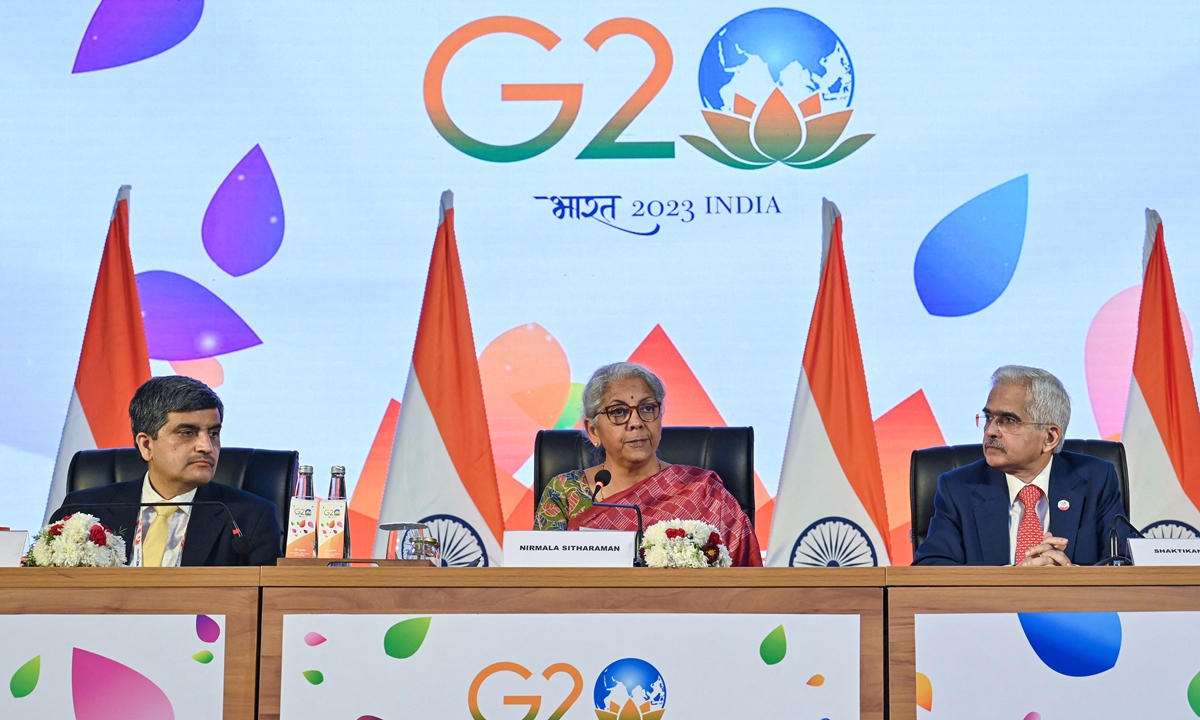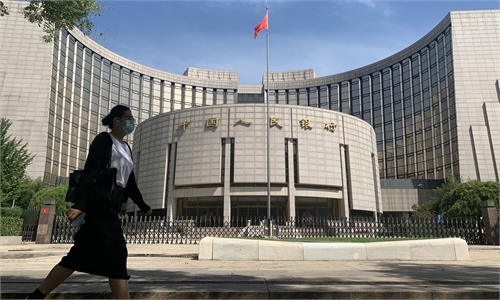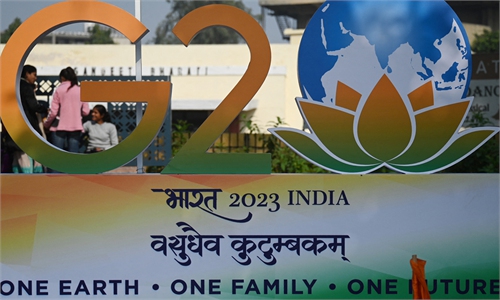
India's Finance Minister Nirmala Sitaraman (Central) addresses a press conference after the G20 Finance meetings under India's G20 Presidency in Bengaluru on February 25. Photo:AFP
The G20 Finance Ministers and Central Bank Governors Meeting that concluded in Bengaluru, India on Saturday failed to issue a joint statement, and the foreign ministers of G20 will meet against this backdrop.As the holder of this year's G20 presidency, India has been trying to remain neutral in the Russia-Ukraine conflict. According to media reports, officials who participated in the meeting revealed that India had been asking not to use the word "war" in the joint statement. As more and more international conferences and events are being dominated by the topic of the Russia-Ukraine conflict, many countries feel like they are being forced to take sides. Can the G20 summit under India's presidency break out of the pattern of idle talk?
The Narendra Modi administration has invested massive human, material, and financial resources into the summit, aiming to achieve three relatively specific goals: to build consensus among major powers and focus on global challenges, to maintain the continuity of issues discussed during G20 summits, and to showcase the continuity, diversity, and inclusiveness of Indian civilization.
Obviously, the Modi administration attaches more importance to the first two goals. Since 2014, it has made becoming a "major power" in the world a diplomatic goal of India. The extraordinary achievements it has achieved in various fields have further bolstered its confidence in striving to accomplish such a purpose.
Since the first G20 summit was held in 2008 in response to the US financial crisis, each summit has issued a joint statement to show consensus on addressing certain major global issues. The world economy has been facing challenges since the financial crisis in 2008 and COVID-19 and the Russia-Ukraine conflict have aggravated the situation. In this context, the G20 summit should focus more on global topics, such as economic recovery and climate governance.
The 2022 G20 summit in Bali, Indonesia, was the first in a row of Global South G20 presidencies.. Indonesia took a flexible approach regarding the Russia-Ukraine conflict; therefore, a joint declaration could be made at the end.
However, to maintain absolute hegemony, certain countries have used their advantages in strength to abuse sanctions and force other countries to take their position on the Russian-Ukrainian conflict. These hegemonic behaviors have created divisions in the world and put enormous pressure on the hosts of the G20 summit.
Unlike Indonesia, the host of the 2022 G20 summit, India is a stronger country with a higher international status and greater international influence. It also has closer ties with Russia. As a result, there are higher expectations for this year's G20 summit.
New Delhi and Moscow share a high degree of strategic mutual trust and deeper defense cooperation. Before 2022, India imported nearly 70 percent of its weapons from Russia. After the outbreak of the Russia-Ukraine conflict, the two countries' strategic cooperation expanded to the energy sector, with Russia now becoming India's largest oil supplier. It is unlikely that India will give up the above-mentioned strategic cooperation with Russia.
Therefore, the upcoming G20 foreign ministers' meeting in March and the G20 summit in September will pressure India significantly due to the bone of contention between India on one side and the US and West on how to deal with Russia-Ukraine conflict. As an article by the Australian think tank Lowy Institute raised the question if India's G20 will deliver more than hot air with the geopolitical context in upheaval.
Some countries, out of their self-interests, try to turn the G20 economic dialogue mechanism that aims at promoting international economic cooperation and global governance into a security dialogue mechanism. At the same time, these countries also engage in creating coteries within the G20, which has worsened the division of the international community and seriously damaged world peace. They do not even take into the interests of India, whom they are trying to woo.
China has always advocated and practiced the principle of "seeking common ground while shelving differences," while promoting the building of a human community with a shared future. Obviously, China's global initiatives and spirit of cooperation are more in line with the G20 objectives and have more in common with India in terms of international cooperation. New Delhi can take this year's G20 summit as an opportunity to strengthen dialogue and cooperation with Beijing in the post-COVID era and jointly promote cooperation and development of the international community.
The author is an associate professor at Sichuan International Studies University. opinion@globaltimes.com.cn



